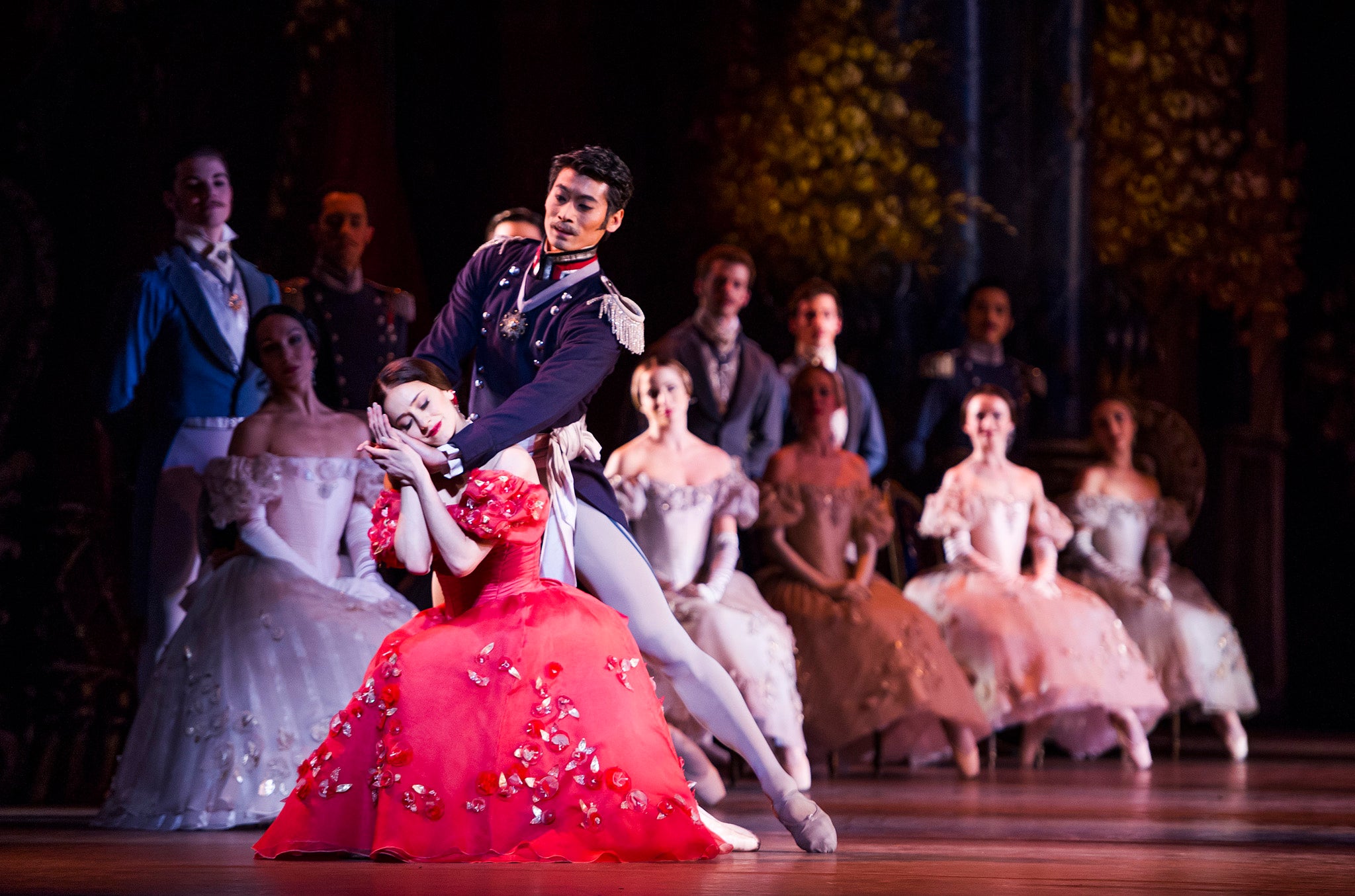Onegin, Royal Opera House, review: Vadim Muntagirov lifts this revival of John Cranko’s overwrought ballet
Cranko offers clear storytelling, but there’s a lack of depth to his production

Your support helps us to tell the story
From reproductive rights to climate change to Big Tech, The Independent is on the ground when the story is developing. Whether it's investigating the financials of Elon Musk's pro-Trump PAC or producing our latest documentary, 'The A Word', which shines a light on the American women fighting for reproductive rights, we know how important it is to parse out the facts from the messaging.
At such a critical moment in US history, we need reporters on the ground. Your donation allows us to keep sending journalists to speak to both sides of the story.
The Independent is trusted by Americans across the entire political spectrum. And unlike many other quality news outlets, we choose not to lock Americans out of our reporting and analysis with paywalls. We believe quality journalism should be available to everyone, paid for by those who can afford it.
Your support makes all the difference.As the doomed friend of a Byronic anti-hero, Vadim Muntagirov dances with lyrical freshness and immediacy. Making his debut as Lensky, he helps to lift this Royal Ballet revival of John Cranko’s overwrought ballet.
The appeal of Onegin is in its central roles. Created in 1965, the ballet was inspired by Pushkin’s poem and Tchaikovsky’s opera. Cranko offers clear storytelling, but there’s a lack of depth to his production. Kurt-Heinz Stolze’s patchwork Tchaikovsky score manages to be less dancey than much of the opera, while Jürgen Rose’s designs are fussy. Still, ballerinas are eager to show Tatiana’s transition from shy bookworm to sophisticated woman, while brooding Onegin, boyish Lensky and flirty Olga offer contrasting personalities.
Muntagirov, who joined The Royal Ballet from English National Ballet last year, is better known for classical than for dramatic roles. Here, his superb dancing creates Lensky as a character. His flowing line and princely bearing show you Lensky’s youth and ardour: perfect technique becomes the mark of an idealist.
It’s an unusual approach in Onegin, which usually gets by on big emotions. Cranko’s backgrounds are sketchy, with thin material for the corps de ballet and few supporting roles. The ballet is so focused on Tatiana that she and Lensky’s fiancée Olga even pop up in the duel scene, getting thoroughly in the way. In this version, Onegin manages to kill his best friend without turning a hair, ignoring Olga’s tears. It takes the heroine’s reproachful stare to make him repent.
Such broad-brush choreography needs strong personalities to carry it. As Tatiana, Marianela Nuñez dances with full, juicy phrasing. You can see that her young heroine is a romantic, eager for grand emotion. Thiago Soares makes a bitter Onegin, bored and frosty on his visit to the provinces. A dramatic dancer, Soares can be sloppy about his technique; here, he shows new focus, with crisper dancing and strong presence.
Cranko stages the famous “letter” scene as a dream pas de deux: Tatiana dances with her imagined Onegin. In this duet’s wall-to-wall lifts, she’s off the ground so much that a swoop upwards no longer looks like a climax. Nuñez and Soares are smoothly matched and fearless, but just miss abandon.
They find it in the last pas de deux. Tatiana, now married, rejects Onegin, who has realised, too late, that he loves her. Nuñez’s Tatiana only just holds on to her decision, with sobs just under the surface. (The sobs were touchingly real: she and Soares, who are married, were in tears at their curtain call.)
The corps de ballet were lively as peasants and party guests. Akane Takada was a rather colourless Olga, though Genesia Rosato and Kristen McNally made the most of their supporting roles. Dominic Grier conducted a clunky account of the Stolze-Tchaikovsky score, with some rough playing from the orchestra of the Royal Opera House.
In repertory until 27 February. Box office 020 7304 4000.
Join our commenting forum
Join thought-provoking conversations, follow other Independent readers and see their replies
Comments